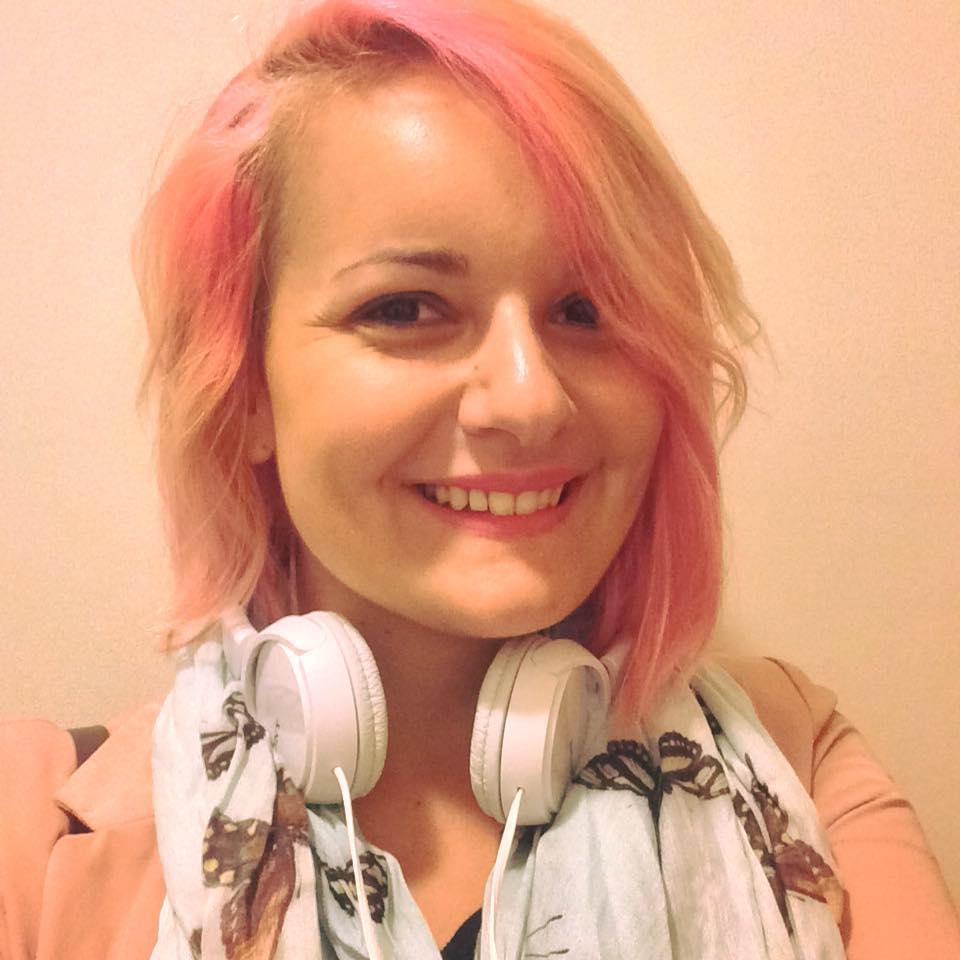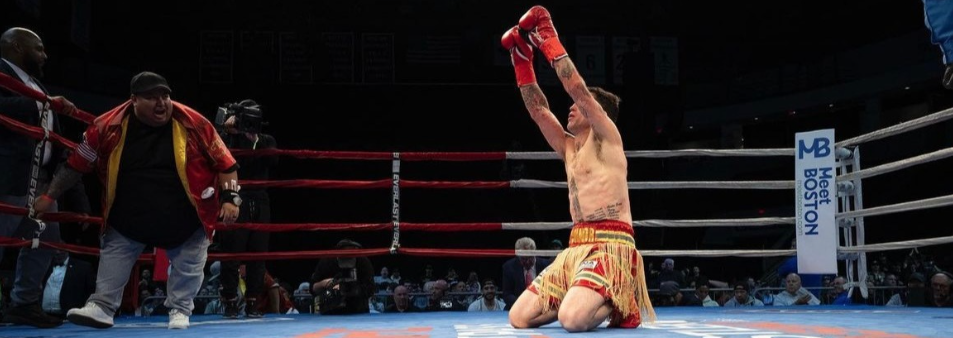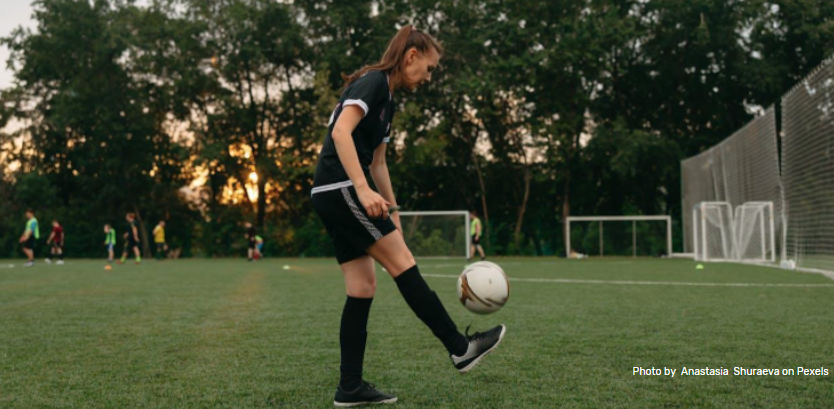Colleen Werner, a professional ballerina in New York City, first got involved with dance when she was only three years old. Today, after overcoming body hatred and an eating disorder, Werner hopes to inspire others to stand up to an industry that pressures dancers to meet often-impossible body standards. The creator of #BopoBallerina, Werner has inspired other dancers to unite and share their stories.
We chatted with this game-changing dancer about her own struggles, body positivity in the dance industry, and what we can do to support her efforts. Check out our interview below!
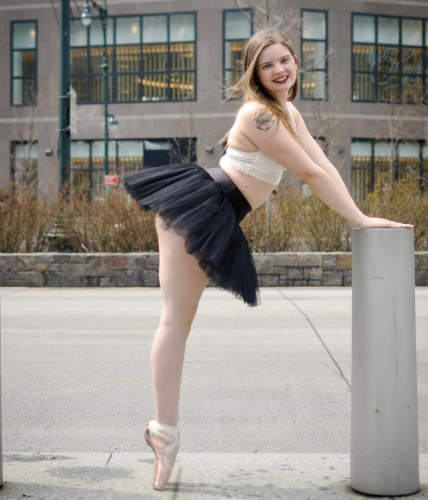 Diana Denza: Can you tell us more about your personal struggle with body image and eating disorders?
Diana Denza: Can you tell us more about your personal struggle with body image and eating disorders?
Colleen Werner: I can first remember hating my body and dieting as young as nine or 10 years old. I remember one of my doctors commenting on my weight when I was eight years old and saying that I needed to eat more salads – that comment has stuck with me since.
My eating disorder was at its worst in high school, when I started training more seriously in ballet, and then again in my freshman year of college. The whole “clean eating” obsession on social media definitely fed into my eating disorder and normalized my behaviors. Comments that I received from fellow dancers and dance teachers also definitely exacerbated my struggles. Until this past year, I thought that hating my body was totally normal. I thought that it was just how I needed to be, and that diet culture was what I should follow forever.
However, this past September I started dialectical behavior therapy (DBT) and I’ve started to gain the tools to heal my relationship with myself and with food. Also, by finding the self-love and body positivity communities on Instagram, I’ve been able to connect with so many amazing individuals who have definitely inspired me to realize that my body and food are not the enemy and that self-love is beautiful.
DD: What is it like to be a professional ballerina taking a stand against body shaming in the industry?
CW: As a professional dancer, it was a very brave, vulnerable move to take a stand against body shaming in the industry. Body shaming is something that is very deeply ingrained in the dance world, and it just isn’t really something that’s discussed openly. Many people in the dance world are extremely opposed to differing body types. It took a lot for me to get to a point where I felt I could say what I needed to say, and I’m very proud of myself for breaking from the norms of the industry.
DD: Have you received any negative feedback? How do you deal with that?
CW: I have received some negative feedback. It’s definitely been difficult to swallow some of it, and it has made me question my decisions in starting this movement. I’ve had to remind myself several times that just because someone says something doesn’t mean it’s a fact. While it’s important to stay open to hearing other perspectives, I don’t think remaining open to people who spout hatred is constructive or healthy in any way, shape, or form. I’ve mostly been trying to laugh off the comments I’ve gotten from trolls and remind myself of the incredible support and love I’ve also received.
DD: Has your body-positive stance affected your career for better or worse?
CW: I’m not totally sure if my body-positive stance has affected my dance career for better or for worse. I’m a member of Long2, a contemporary dance company in NYC directed by Vanessa Long, which is a company rooted in social activism, and Vanessa has wholeheartedly supported me and my message. She actually choreographed a solo piece for me this season about body positivity and body acceptance to Mary Lambert’s “Body Love,” which can be viewed here. I’m sure that some members of the dance industry may very well disagree with my stance, and as a result may not hire me; however, I have also heard from many members of the industry that I’m inspiring and that they are grateful for the change I’m trying to make.
DD: What would you tell other dancers who are struggling with their bodies?
CW: I would tell other dancers who are struggling with their bodies that they are beautiful and enough just as they are. You don’t need to have the “ideal ballerina body” in order to be a talented dancer or to be worthy. Don’t let anyone tell you that you shouldn’t be a dancer simply because of the way you look. I promise it will get better, and I promise that even though loving your body is hard, it is SO worth it. You aren’t alone, and if you ever need support or a friend, I’m willing to listen. I want any dancer who is struggling with their body to know that I am here for them, I love them, and I believe in them.
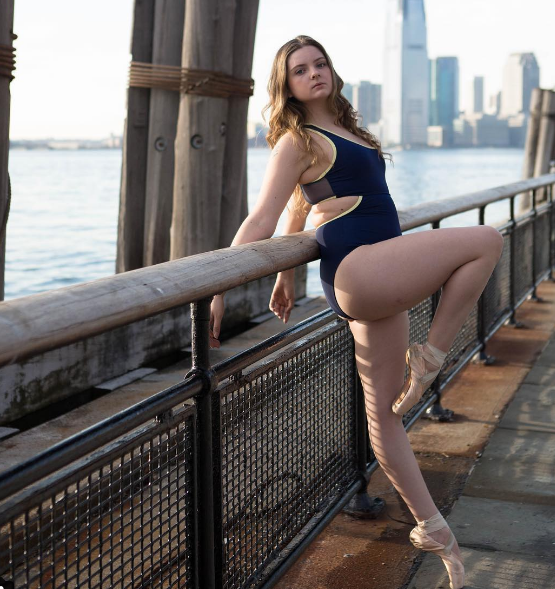 DD: What changes would you like to see in the industry in terms of body image?
DD: What changes would you like to see in the industry in terms of body image?
CW: One big change that I would love to see in the dance industry regarding body image is for dance teachers to stop discussing weight. Weight is not necessarily a true indicator of health, and most dance teachers aren’t trained medical professionals. So many dance teachers focus heavily on weight, and this can lead to very unhealthy cognitive patterns in dancers and can definitely contribute to eating disorders.
The discussion of weight should be left to a dancer and their doctor, not their teacher. I would also love to see more eating disorder awareness in dance studios and dance companies. Eating disorders are so rampant in the dance community, and awareness of these disorders isn’t something typically seen. I would love for more studios and companies to have dietitians, therapists, and other professionals and survivors come in and educate dancers, parents, and teachers about these issues so that we can encourage healthy body image and help save lives. I would love for this to become commonplace in the community.
DD: Is there anything people who aren’t in the industry can do to support your efforts?
CW: I think one big thing people who aren’t in the industry can do to support my #BopoBallerina movement is to support and promote body-positive dancers. These dancers (like myself) often face a lot of backlash, and it takes a lot of bravery to put themselves out there. By supporting, lifting up, and defending these dancers (whether it be through commenting, reposting, or whatever else), people who aren’t in the industry can serve as allies. Another way people outside of the dance industry can get involved is by sharing how #BopoBallerina has inspired them to push past the body shaming in their own industry. Many sports and professions are definitely filled with body shame like the dance world is, and it would be really cool to be able to bridge the gaps between these industries so that we can all support each other, even if we aren’t in the same industry.


